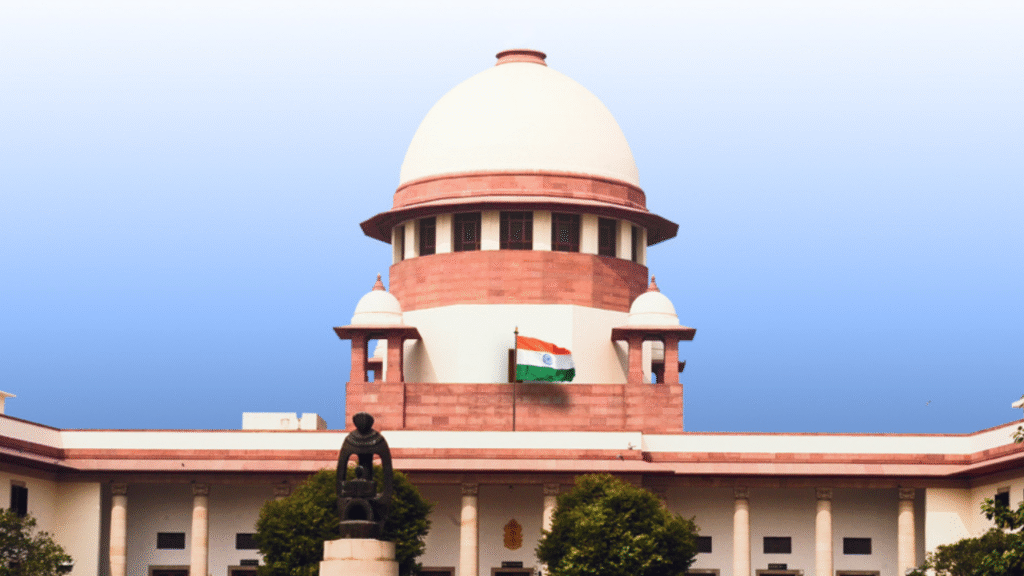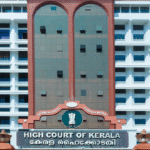Arbitration – Concession Agreement – Works Contract – Exclusive Jurisdiction of Statutory Tribunal – Maintainability of Writ Petition – Doctrine of Election – Limitation.
(2025) 7 SCD 89 : 2025 INSC 907
UMRI POOPH PRATAPPUR (UPP) TOLLWAYS PVT. LTD. v. M.P. ROAD DEVELOPMENT CORPORATION AND ANOTHER
Civil Appeal No. 9920 of 2025 (Arising out of SLP (C) No. 13415 of 2025) July 30, 2025
Facts: The appellant (UMRI POOPH PRATAPPUR TOLLWAYS PVT. LTD.) and Respondent No. 1 (Madhya Pradesh Road Development Corporation) entered into a Concession Agreement on 05.01.2012 for the development of the Umari – Pooph – Pratappur Road on a Build, Operate and Transfer (BOT) basis. Disputes arose, leading the appellant to initially file Reference Case No. 61 of 2018 before the Madhya Pradesh Arbitration Tribunal under the Madhya Pradesh Madhyastham Adhikaran Adhiniyam, 1983 (the 1983 Act). Simultaneously, the appellant invoked Clause 44.3.1 of the Concession Agreement and initiated private arbitration proceedings before the International Centre for Alternative Dispute Resolution (ICADR) under the Arbitration and Conciliation Act, 1996 (the 1996 Act). The ICADR and the Arbitral Tribunal passed orders dated 02.06.2022 and 07.06.2022, respectively, appointing an arbitrator and issuing a notice for preliminary hearing. Respondent No. 1 challenged these orders by filing Writ Petition No. 14569 of 2022 before the High Court of Madhya Pradesh. During the writ petition’s pendency, the appellant withdrew Reference Case No. 61 of 2018 from the Madhya Pradesh Arbitration Tribunal on 08.02.2023. The High Court, by judgment dated 09.09.2024, allowed the writ petition and quashed the ICADR and Arbitral Tribunal orders. The appellant preferred the present appeal before the Supreme Court.
Issues:
Whether the writ petition filed by Respondent No. 1 against the appellant, a private company, was maintainable.
Whether disputes arising from the Concession Agreement, which is a ‘works contract,’ fall within the exclusive jurisdiction of the Madhya Pradesh Arbitration Tribunal under the 1983 Act, thereby excluding arbitration under the 1996 Act.
Whether the appellant’s claims were “ascertained” or “ascertainable” as per the 1983 Act, and if the High Court erred in its determination.
Whether the appellant’s parallel invocation of remedies and withdrawal of the reference from the Madhya Pradesh Arbitration Tribunal without permission amounted to forum shopping or was barred by the doctrine of election/res judicata.
Whether the claims initiated under the 1996 Act were time-barred.
Appellant’s Contentions (Summarized): The writ petition was not maintainable against a private entity. Arbitration under the 1996 Act was contractually agreed upon (Clause 44.3.1) and not superseded by the 1983 Act, which only applied to “ascertained” claims, whereas their claims were “ascertainable”. The 1996 Act is a self-contained code, and the 1983 Act Tribunal is inefficient and functions more like a civil court. The doctrine of election was inapplicable as arbitration was a binding contractual remedy. Quashing the arbitration left the appellant without an effective legal remedy.
Respondent’s Contentions (Summarized): The Concession Agreement constitutes a “works contract” under the 1983 Act. Respondent No. 1 is a State-owned entity, making the 1983 Act mandatory and establishing the Madhya Pradesh Arbitration Tribunal as the exclusive forum, notwithstanding any arbitration clause in the agreement. This exclusivity is upheld by numerous Supreme Court precedents (e.g., Madhya Pradesh Rural Road Development Authority v. L.G. Chaudhary Engineers and Contractors, Viva Highways Ltd.). The appellant’s claims, though quantified at Rs. 280.1566 crores, were time-barred, and initiating private arbitration amounted to forum shopping. The withdrawal of the reference from the Madhya Pradesh Arbitration Tribunal without permission under Rule 53(3)(b) of the Madhya Pradesh Madhyastham Adhikaran Regulations, 1985, barred re-litigation. Contractual terms cannot override statutory mandates.
Holding and Reasoning:
Maintainability of Writ Petition: The Supreme Court held the writ petition was maintainable. Respondent No. 1 is a State-owned entity, and the road development project involved a public function. The dispute concerned the availability and exclusivity of a statutory dispute resolution mechanism, thus involving a public law element, not merely private contractual obligations. The Court referenced Federal Bank Ltd. v. Sagar Thomas and Binny Ltd v. Sadasivan to clarify the scope of writ jurisdiction against private bodies performing public functions.
Exclusive Jurisdiction: The Court affirmed that the Concession Agreement unquestionably qualifies as a “works contract” under Section 2(1)(i) of the 1983 Act. It reiterated that the 1983 Act, being a special law, has an overriding effect, mandating that disputes arising from such contracts must be adjudicated exclusively by the Madhya Pradesh Arbitration Tribunal, even if the agreement contains an arbitration clause under the 1996 Act. Section 2(4) of the 1996 Act preserves the operation of special statutory forums like the Madhya Pradesh Arbitration Tribunal.
Nature of Claims: The Court found the appellant’s claims, aggregating to Rs. 280.1566 crores, to be quantified monetary claims, squarely falling within the definition of “dispute” under Section 2(1)(d) of the 1983 Act, which includes both “ascertained and ascertainable” monetary claims. It also noted that the 1983 Act was amended post-Viva Highways to expressly include “unascertained” money claims, overriding any restrictive interpretation.
Precedential Value: The Court relied heavily on its prior decisions, particularly Madhya Pradesh Rural Road Development Authority v. L.G. Chaudhary Engineers and Contractors and the affirmation of Viva Highways Ltd. (Full Bench of MP High Court), which consistently uphold the exclusive jurisdiction of the Madhya Pradesh Arbitration Tribunal for “works contracts” disputes.
Contractual Terms vs. Statutory Mandate: The Court emphasized that parties cannot contract out of a statutory obligation enacted in furtherance of public interest. Clause 44.3.1 of the Concession Agreement, to the extent it provides for private arbitration, was held inoperative as it sought to override the statutory mandate of the 1983 Act.
Doctrine of Election/Estoppel/Forum Shopping: The Court held that the appellant’s parallel invocation of remedies was impermissible and amounted to forum shopping. The appellant’s challenge to the binding nature of Viva Highways was barred by the doctrine of constructive res judicata, having been a party to the SLP where the judgment was upheld. Furthermore, the withdrawal of the reference petition from the Madhya Pradesh Arbitration Tribunal without seeking liberty to re-file precluded the appellant from initiating a fresh reference on the same subject matter under Rule 53(3)(b) of the 1985 Regulations.
Limitation: The Court also noted that the appellant’s claims, arising from events between 2013-2015, were time-barred under Section 43 of the 1996 Act read with the Limitation Act, 1963, given the belated invocation of arbitration in 2022.
Decision: The Supreme Court upheld the High Court’s judgment, affirming that the private arbitration proceedings were non-est in law and that the Madhya Pradesh Arbitration Tribunal established under the 1983 Act is the appropriate and exclusive forum for adjudication. However, in the interest of justice and considering the Respondent’s no-objection, the Court permitted the appellant to file an application to recall the withdrawal order dated 08.02.2023 and seek restoration of Reference Petition No. 61 of 2018 before the Madhya Pradesh Arbitration Tribunal within two weeks. The Tribunal was directed to consider the application on its merits within a further two weeks and, if restored, dispose of the reference on merits within four months.
Result: Appeal disposed of; no order as to costs.

